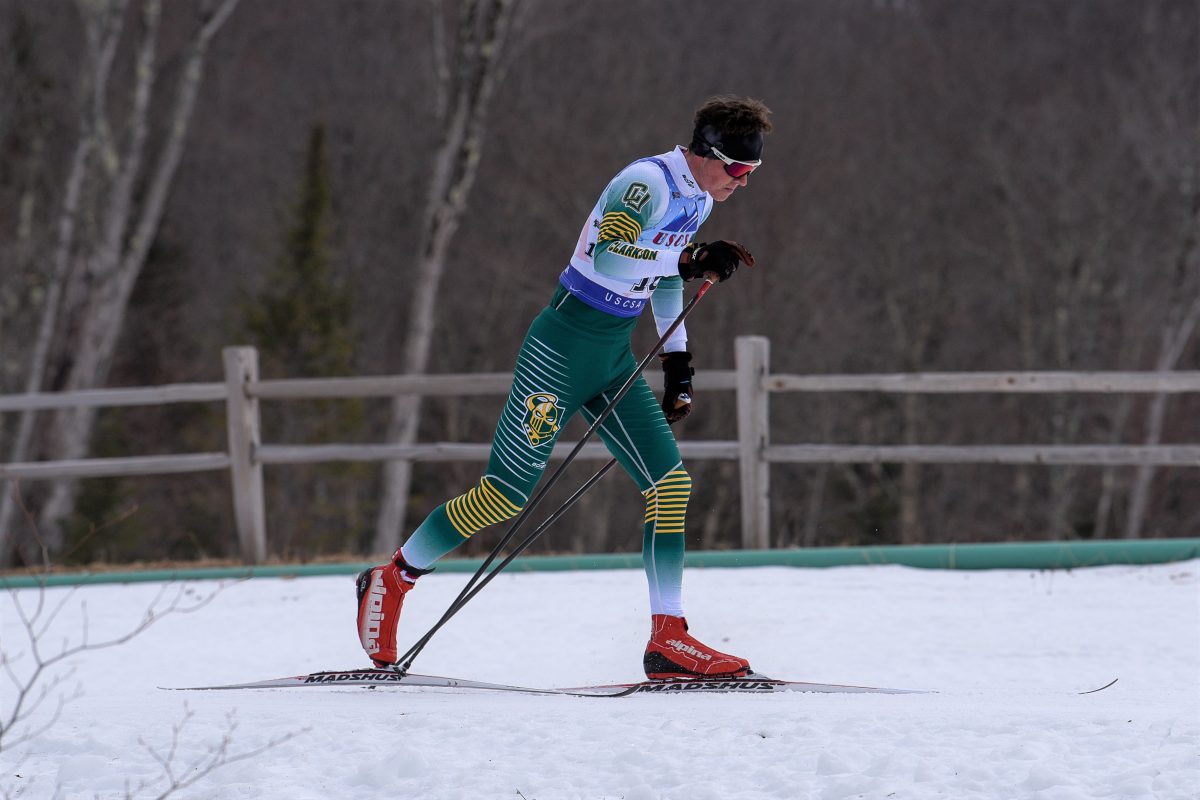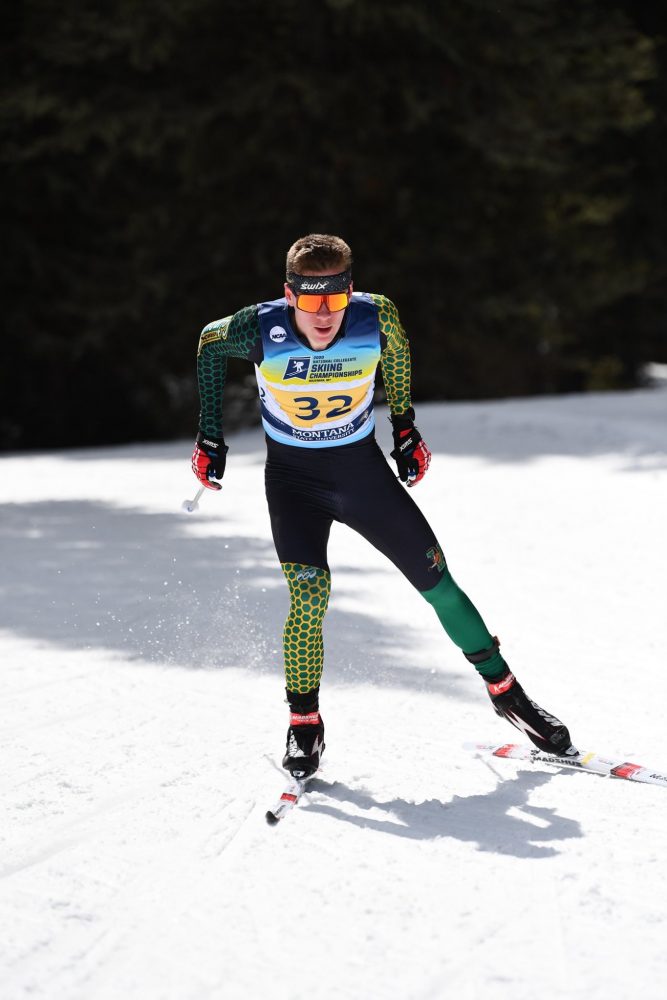
While his Canadian teammates were out marching in front of their home crowd in Vancouver at the opening ceremonies for the 2010 Olympic Games, Devon Kershaw was alone, 60 miles away, watching them on a “fuzzy, little, little screen.”
Kershaw got a small consolation prize, according to his Twitter feed—seeing his girlfriend, Chandra Crawford, a few times on that tiny television. But his decision to stay near Whistler was one faced by dozens of athletes today: take the eleven-hour round-trip to Vancouver for one of the most exciting experiences of your life? Or focus every last ounce of energy on a top Olympic result?
“It comes down to the question of whether you’re starting in one of the first races, and how it is going to affect you,” said Matt Whitcomb, a member of the American cross country team’s coaching staff, in an interview. “That’s a tough decision, because it’s a really big day that really revolves around the event.”
The first cross country events and biathlon events are in just a few days, and for some athletes who have worked for four years to get themselves into peak fitness, the drain on their bodies from the long drive and time on their feet was too high to be outweighed by the thrill of attending the ceremonies.
“Since our race is only two days away, and the entire Opening Ceremonies is scheduled to take 11 hours from door to door, I won’t be participating,” American biathlete Lowell Bailey wrote on his blog. “It’s a tough call since I missed the Torino ceremonies for the same reason. But I’m here to compete, not for the pomp and circumstance!”
For James Southam, an American cross country skier, it was the other way around. He also missed the opening ceremonies in Torino because of a race scheduled for the next morning. But with his first competition in Whistler not until the 15th, Southam decided to get on the bus.
“It is one of those things that people always talk about as a highlight of their Olympic experience,” he wrote on JamesSoutham.com, “so I need to do it at least once.”
The Americans ended up sending seven of their eleven team members, and Whitcomb said that the decision was entirely up to the athletes. He wouldn’t say who elected to stay behind, but Andy Newell, Garrott Kuzzy, and Torin Koos were three of the four, based on interviews, Twitter, and blogs.
For Whitcomb, attending his first Olympics, the ceremonies were one of the few times that he and his colleagues get to share in their athletes’ excitement firsthand. Half the American coaching staff, Whitcomb said—himself included—was able to travel to Vancouver along with the skiers, while the rest remained in Whistler with the rest of the team.
“It’s a huge event, and despite maybe being a bit fatiguing, it will be vastly inspiring,” Whitcomb said. “This is all so huge and exciting to me…It has been inspiring moment after inspiring moment just every day.”
Nathaniel Herz
Nat Herz is an Alaska-based journalist who moonlights for FasterSkier as an occasional reporter and podcast host. He was FasterSkier's full-time reporter in 2010 and 2011.



